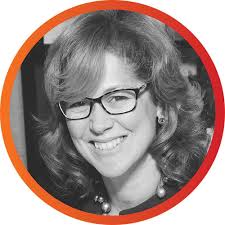If you missed the Willow Creek Global Leadership Summit this year, no worries I’ve got you covered. I’ll be posting my notes and thoughts from each presenter over the next couple of days.
Shelia Heen is the founder of the Triad Consulting Group and faculty at Harvard Law School.
- In any exchange between giver & receiver it’s the receiver that’s in charge. They’re the one who decides what they let in and what they’re going to do with it. Even if the feedback is off-based and it’s delivered poorly.
- Feedback sits at the center of 2 human needs:
- The need to learn and grow
- The need to feel respected or loved the way we are now
- While we learn from pain the goal is to understand it faster to get to the learning faster
- 3 different kinds of feedback…and we need all 3
- Appreciation: I see you, I get you, you matter around here // keeps us motivated
- Coaching: anything that helps you get better at something to learn a new skill, discipline, or art // helps us get better
- Evaluation: rates or ranks you against or criteria or against your peers // helps us know where we stand
- Appreciation drops out first.
- Evaluation & coaching get tangled up together and that’s a problem because evaluation is the one we emotionally respond to
- Why we reject feedback/coaching
- It was wrong
- I didn’t respect them
- I didn’t like them
- They were a phony
- Not aligned with my values
- I was too stubborn
- I was too young
- I was in love
- Getting better at receiving feedback doesn’t mean you need to accept every piece of feedback
- Human beings are great at “wrong spotting”
- You will always be able to find something wrong with the feedback you receive
- 3 reasons
- Truth Triggers: is it accurate & right
- Relationship Triggers: who’s giving you the feedback
- Identity Triggers: who you are and your particular wiring
- Skills to receiving feedback
- Not deciding if it’s right or wrong immediately but try to understand what the giver means
- See yourself clearly: Everyone has blind spots
- The fastest way to change the feedback culture in any organization is for the leaders to model it
- How to start:
- What’s 1 thing you appreciate about how I lead the team, family, etc.?
- What’s 1 thing you see me doing, or failing to do, that you think I should change?
- People won’t tell you until they believe you want to know.


Leave a Reply